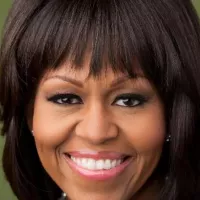Nigeria is a West African nation, the most populous in Africa and sixth-most globally, with over 230 million people. Bordered by Niger, Chad, Cameroon, and Benin, it's a federal republic consisting of 36 states and the Federal Capital Territory, Abuja. Lagos is its largest city and one of Africa's largest metropolitan areas. Situated between the Sahel and the Gulf of Guinea, Nigeria covers 923,769 square kilometers.
1900: Southern Nigeria Protectorate established
In 1900, the British government directly controlled the Royal Niger Company's territory and established the Southern Nigeria Protectorate.
1902: British plans to move north into the Sokoto Caliphate
By 1902, the British had begun plans to move north into the Sokoto Caliphate.
March 1903: British victory in the Battle of Kano
On March 13, 1903, at the grand market square of Sokoto, the last vizier of the caliphate officially conceded to British rule.
June 1903: British defeated the remaining northern forces of Attahiru
In June 1903, the British defeated the remaining northern forces of Attahiru.
1903: Break-up of Sokoto Caliphate into European colonies
By 1903, the Sokoto Caliphate was broken up into various European colonies.
1906: End of all resistance to British rule
By 1906, all resistance to British rule in Nigeria had ended.
1911: Kingdom of Nri loses sovereignty to British
In 1911, the Kingdom of Nri lost its sovereignty to the British.
January 1914: Unification of Southern and Northern Nigeria
On January 1, 1914, the British formally united the Southern Nigeria Protectorate and the Northern Nigeria Protectorate into the Colony and Protectorate of Nigeria.
1914: Merging of Southern and Northern Nigeria Protectorates
In 1914, the Southern Nigeria Protectorate and the Northern Nigeria Protectorate merged, creating the present territorial shape of Nigeria under British colonial rule.
1936: Slavery outlawed in Northern Nigeria
In 1936, Northern Nigeria outlawed slavery.
1950: Population of Lagos
In 1950, the population of Lagos was about 300,000.
1954: Nigeria gained a degree of self-rule
In 1954, Nigeria gained a degree of self-rule.
October 1960: Nigeria becomes an independent federation
In October 1960, Nigeria formally became an independent federation.
October 1960: Nigeria gained full independence from the United Kingdom
On October 1, 1960, Nigeria gained full independence from the United Kingdom as the Federation of Nigeria, with Abubakar Tafawa Balewa as Prime Minister and Elizabeth II as Queen of Nigeria.
November 1960: Nnamdi Azikiwe replaced the colonial governor-general
In November 1960, Nnamdi Azikiwe replaced the colonial governor-general.
1960: Eve of independence
By the eve of independence in 1960, regional differences in modern educational access were marked.
1960: Nigeria, We Hail Thee - original anthem
In 1960 Nigeria adopted 'Nigeria, We Hail Thee' as the country's national anthem.
1960: End of British colonisation
In 1960, British colonisation ended in Nigeria.
1960: Nigeria gains independence in 1960
In 1960, upon gaining independence, Nigeria made African unity the centrepiece of its foreign policy. One exception to the African focus was Nigeria's close relationship with Israel throughout the 1960s.
1961: 1961 plebiscite
In 1961, Southern Cameroons opted to join the Republic of Cameroon while Northern Cameroons chose to join Nigeria.
January 1966: First military coup
In January 1966, a military coup led by Majors Emmanuel Ifeajuna, Chukwuma Kaduna Nzeogwu, and Adewale Ademoyega took place.
1966: 1966 pogroms
In 1966 there were continuous and systematically planned attacks against Igbos and those of Eastern extraction popularly known as 1966 pogroms.
May 1967: Republic of Biafra declared
In May 1967, Lt. Colonel Emeka Ojukwu declared the Eastern Region independent from the federation as the Republic of Biafra.
July 1967: Start of Nigerian Civil War
On July 6, 1967, the Nigerian Civil War began when the Nigerian government attacked Biafra at Garkem.
July 1971: Nigeria Joins OPEC
In July 1971, Nigeria joined OPEC and has remained a key player in the international oil industry ever since.
1973: Discovery of Niger Delta Nembe Creek oil field
The Niger Delta Nembe Creek oil field was discovered in 1973.
July 1975: Military coup
In July 1975, a coup led by Generals Shehu Musa Yar'Adua and Joseph Garba ousted Gowon.
February 1976: Failed coup attempt and assassination of General Murtala Muhammed
In February 1976, Colonel Buka Suka Dimka launched a coup attempt during which General Murtala Muhammed was assassinated. The coup failed due to lack of support, leading to Dimka's flight and General Olusegun Obasanjo's appointment as head of state.
1978: Nigeria replaced 'Nigeria, We Hail Thee' with Arise, O Compatriots.
In 1978 Nigeria replaced the former anthem 'Nigeria, We Hail Thee' with the song 'Arise, O Compatriots'.
October 1979: Shehu Shagari Sworn in as President
On October 1979, Shehu Shagari was sworn in as the first President and Commander-in-Chief of the Federal Republic of Nigeria, marking Obasanjo's peaceful transfer of power, a first in Nigerian history.
1979: Political emancipation of women
In 1979, women throughout Nigeria were politically emancipated, granting them the right to participate in the country's political processes.
1980: Nigeria wins Africa Cup of Nations
In 1980, Nigeria's national football team won the Africa Cup of Nations.
August 1983: Shagari and NPN Returned to Power Amidst Allegations of Vote-Rigging
In August 1983, Shagari and the NPN were returned to power in a landslide victory, capturing a majority of seats in the National Assembly and control of 12 state governments. However, the elections were marred by violence and allegations of widespread vote-rigging.
1983: Military Coup d'état Installs Muhammadu Buhari as Head of State
In 1983, a military coup d'état coordinated by key officers of the Nigerian military led to the overthrow of the government and the installation of Major General Muhammadu Buhari as head of state.
1983: First presidential election since 1983 military coup
The 1993 presidential election held on 12 June was the first since the military coup of 1983.
1984: Publicly viewed positive coup by Muhammadu Buhari
In 1984, the military coup of Muhammadu Buhari shortly after the regime's re-election was generally viewed as a positive development.
1985: Ibrahim Babangida Overthrows Buhari in a Coup d'état
In 1985, Ibrahim Babangida overthrew Buhari in a coup d'état.
1986: Babangida Establishes the Nigerian Political Bureau
In 1986, Babangida established the Nigerian Political Bureau, which made recommendations for the transition to the Third Nigerian Republic.
1987: Bamako Initiative
Nigeria has been reorganising its health system since the Bamako Initiative of 1987, which formally promoted community-based methods of increasing accessibility of drugs and health care services to the population, in part by implementing user fees.
1989: Babangida Starts Planning the Transition to the Third Nigerian Republic
In 1989, Babangida started making plans for the transition to the Third Nigerian Republic.
1990: Production from small oil fields
As of 1990, small oil fields accounted for 62.1% of all Nigerian petroleum production, contrasting with the sixteen largest fields which produced 37.9%.
1990: Forest lost between 1990 and 2000
Between 1990 and 2000, Nigeria lost an average of 409,700 hectares of forest every year equal to an average annual deforestation rate of 2.4%.
1990: Nigeria's population growth
From 1990 to 2008, Nigeria's population increased by 57 million.
1990: Babangida Survives Coup Attempt, Postpones Democracy
In 1990, Babangida survived the 1990 Nigerian coup d'état attempt, then postponed a promised return to democracy to 1992.
1991: Ben Okri wins Booker Prize
In 1991, Ben Okri was awarded the prestigious Booker Prize for his contribution to literature.
1992: Formation of Two-Party System
In 1992, Babangida legalized the formation of political parties and formed the two-party system with the Social Democratic Party and National Republican Convention ahead of the general elections.
1992: Postponed democracy by Babangida
In 1992, Babangida postponed a promised return to democracy after surviving the 1990 Nigerian coup d'état attempt.
August 1993: Babangida Relinquishes Power to an Interim Government
In August 1993, Babangida relinquished power to a civilian government, appointing Ernest Shonekan as head of an interim national government after annulling the elections.
1993: Shonekan's government overthrown in coup
In 1993, Shonekan's interim government was overthrown in a coup d'état led by General Sani Abacha, who used military force to suppress civilian unrest.
April 1994: Super Eagles ranked fifth in FIFA World Rankings
In April 1994, the Super Eagles, Nigeria's national football team, achieved their highest ranking by placing fifth in the FIFA World Rankings.
1995: Nigeria expelled from Commonwealth of Nations
In 1995, Nigeria was temporarily expelled from the Commonwealth of Nations while ruled by the Abacha regime.
1995: Number of Nigerian doctors practicing in the United States
In 1995, an estimated 21,000 Nigerian doctors were practising in the United States alone.
1995: Hanging of Ken Saro-Wiwa and Nigeria's Suspension from the Commonwealth
In 1995, the government hanged environmentalist Ken Saro-Wiwa on trumped-up charges, leading to Nigeria's suspension from the Commonwealth.
1996: Nigeria wins gold at the Summer Olympics
In 1996, Nigeria's national football team won the gold medal for football at the Summer Olympics, becoming the first African football team to achieve this milestone.
1998: Death of General Sani Abacha
In 1998, General Sani Abacha died in the villa, bringing his regime to an end.
1998: Super Eagles at the FIFA World Cup
In 1998, Nigeria's national football team, the Super Eagles, participated in the FIFA World Cup.
May 1999: Obasanjo Assumes Presidency, Marking the Start of the Fourth Republic
On 29 May 1999, Abubakar handed over power to Olusegun Obasanjo as President of Nigeria, heralding the beginning of the Fourth Nigerian Republic.
May 1999: Abubakar adopts new constitution
On May 5, 1999, General Abdulsalami Abubakar adopted a new constitution which provided for multi-party elections.
1999: Hindrance to economic development
Before 1999, economic development was hindered by years of military rule, corruption, and mismanagement.
1999: Stable government achieved in Nigerian presidential election
In 1999, Nigeria achieved a stable government following the Nigerian presidential election.
2000: Forest lost between 1990 and 2000
Between 1990 and 2000, Nigeria lost an average of 409,700 hectares of forest every year equal to an average annual deforestation rate of 2.4%.
2000: Evidence of iron smelting at Lejja
Evidence of iron smelting dating to 2000 BC was excavated at the site of Lejja in the Nsukka region of southeast Nigeria.
2000: Rise in Chinese-Nigerian trade relations
Since 2000, Chinese–Nigerian trade relations have risen exponentially, leading to a trade imbalance with Nigeria importing significantly more than it exports to China.
2001: ICT sector contribution to GDP
In 2001, Nigeria's ICT sector represented 1% of the nation's GDP, later growing to 10% in 2018.
2002: Chinua Achebe wins Peace Award of the German Book Trade
In 2002, Chinua Achebe was honored with the Peace Award of the German Book Trade.
2002: Super Eagles at the FIFA World Cup
In 2002, Nigeria's national football team, the Super Eagles, played in the FIFA World Cup.
December 2003: Opening of Millennium Park
In December 2003, Millennium Park in Abuja, designed by architect Manfredi Nicoletti, was officially opened.
2003: Nigeria Airways over-indebted
In 2003, Nigeria Airways was over-indebted and was bought by the British Virgin Group.
2003: Obasanjo Runs for a Second Term
In 2003, elections were held allowing Obasanjo to run for a second term, which were condemned as unfree and unfair.
2003: Creation of the Nigerian Economic and Financial Crimes Commission
In 2003, the Nigerian Economic and Financial Crimes Commission (EFCC) was created to combat financial crime.
2004: Opening of Chinese-origin research reactor
Nigeria opened in 2004 a Chinese-origin research reactor at Ahmadu Bello University.
June 2005: Nigeria Airways rebranded as Virgin Nigeria Airways
In June 2005, Nigeria Airways began flying under the name Virgin Nigeria Airways.
2005: Nigeria Has Highest Deforestation Rate
In 2005, Nigeria had the highest rate of deforestation in the world, with 12.2% of its land forested.
November 2006: Africa-South America Summit in Abuja
In November 2006, Nigeria organized an Africa-South America Summit in Abuja to promote "South-South" linkages.
2007: Chinua Achebe wins Booker Prize
In 2007, Chinua Achebe won the Booker Prize, adding to his literary achievements.
2007: President urges embrace of nuclear power
In 2007, President Umaru Yar'Adua urged the country to embrace nuclear power to meet its growing energy needs.
2007: Umaru Yar'Adua Comes to Power
In the 2007 general elections, Umaru Yar'Adua of the People's Democratic Party came to power, though the elections were condemned as flawed.
November 2008: MTV Africa Music Awards in Abuja
In November 2008, Nigeria's music scene gained international attention when MTV hosted the first African music awards show in Abuja.
2008: Virgin Group withdrawal from Virgin Nigeria Airways
At the end of 2008, the Virgin Group announced its withdrawal from Virgin Nigeria Airways.
2008: Nigeria's population growth
From 1990 to 2008, Nigeria's population increased by 57 million, a 60% growth rate.
2008: Introduction of the Marriage Rights Act
The Marriage Rights Act banning marriage of girls under 18 was introduced on a federal level in 2008.
September 2009: Virgin Nigeria Airways operating as Nigerian Eagle Airlines
Since September 2009, the airline formerly known as Virgin Nigeria Airways has been operating as Nigerian Eagle Airlines.
2009: Release of The Figurine
In 2009, The Figurine, a thriller film, was released, bringing increased media attention to the New Nigerian Cinema revolution.
2009: Eyo carnival in Lagos
In 2009, the Eyo carnival, a yearly festival originating from Iperu Remo, Ogun State, was held in Lagos as a step toward achieving world city status.
May 2010: Death of Yar'Adua, Jonathan Becomes Acting President
On 5 May 2010, Yar'Adua died, and Vice President Goodluck Jonathan had been sworn in by the Senate three months earlier as acting president to succeed Yar'Adua.
2010: Religion data of Nigeria
In 2010, 49.3% of Nigeria's population was Christian, 48.8% was Muslim, and 1.9% were followers of indigenous and other religions.
2010: Super Eagles at the FIFA World Cup
In 2010, the Super Eagles, Nigeria's national football team, competed in the FIFA World Cup.
2010: Release of Ijé
In 2010, the film Ijé by Chineze Anyaene, was released and became the highest-grossing Nigerian film, surpassing The Figurine.
2010: Lead Poisoning Outbreak in Zamfara
In 2010, thousands of people were inadvertently exposed to lead-containing soil from informal gold mining in Zamfara, leading to an estimated 400 children deaths from acute lead poisoning.
2010: Citigroup projection for Nigeria's GDP growth
In 2011, Citigroup projected that Nigeria would have the highest average GDP growth in the world between 2010 and 2050.
2010: Start of Boko Haram and Bandit Conflict
Since mid-2010, the Boko Haram and bandit conflict have been responsible for numerous serious attacks with thousands of casualties.
May 2011: Nigeria Security Tracker established
In the first 12 months since its establishment in May 2011, the Council on Foreign Relations' Nigeria Security Tracker counted 1,086 deaths from Boko Haram attacks and 290 deaths from police violence.
2011: Citigroup projection for Nigeria's GDP growth
In 2011, Citigroup projected that Nigeria would have the highest average GDP growth in the world between 2010 and 2050.
2011: Jonathan Wins Presidential Election
In 2011, Jonathan won the presidential election; the polls went smoothly and with relatively little violence or electoral fraud.
2012: Pew Research Center report on religion and public life
A 2012 report on religion and public life by the Pew Research Center stated that in 2010, 49.3% of Nigeria's population was Christian, 48.8% was Muslim, and 1.9% were followers of indigenous and other religions.
2012: Establishment of Air Peace
In 2012, Air Peace, the largest airline in Nigeria, was founded as a privately owned company.
2012: Nigeria Qualifies for Summer Olympics
In 2012, Nigeria's national basketball team qualified for the Summer Olympics after beating world elite teams such as Greece and Lithuania.
2012: Launch of new bone marrow donor program
In 2012, a new bone marrow donor program was launched by the University of Nigeria to help people with leukaemia, lymphoma, or sickle cell disease.
June 2013: Shell's strategic review of operations in Nigeria
In June 2013, Shell announced a strategic review of its operations in Nigeria, hinting at potential asset divestment.
2013: Film Industry Revenue
By the end of 2013, the Nigerian film industry reportedly hit a record-breaking revenue of ₦1.72 trillion (US$4.1 billion).
2013: Release of Half of a Yellow Sun
In 2013, the film Half of a Yellow Sun was released.
August 2014: Shell finalizing interests in Nigerian oil fields
In August 2014, Shell said it was finalizing its interests in four Nigerian oil fields.
2014: Boko Haram insurgency
2014 saw the emergence of a wave of terror by the Boko Haram insurgency, including the Gwoza massacre and Chibok schoolgirls kidnapping.
2014: Film Industry Value
As of 2014, the Nigerian film industry was worth ₦853.9 billion (US$5.1 billion), making it the third most valuable film industry in the world.
2014: Half of a Yellow Sun surpasses Ijé
In 2014, Half of a Yellow Sun (2013) overtook Ijé to become the highest-grossing Nigerian film.
2014: Super Eagles at the FIFA World Cup
In 2014, Nigeria's national football team, the Super Eagles, participated in the FIFA World Cup.
2014: Nigeria's containment of the Ebola outbreak
In the 2014 Ebola outbreak, Nigeria was the first country to effectively contain and eliminate the Ebola threat.
February 2015: Establishment of Multinational Joint Task Force
In February 2015, the Boko Haram-affected states agreed to establish an 8,700-strong Multinational Joint Task Force to jointly fight Boko Haram.
April 2015: Nigeria begins talks with Rosatom
In April 2015, Nigeria began talks with Russia's state-owned Rosatom to collaborate on the design, construction and operation of four nuclear power plants by 2035, the first of which will be in operation by 2025.
June 2015: Sites selected for nuclear plants
In June 2015, Nigeria selected two sites for the planned construction of nuclear plants.
October 2015: Boko Haram driven out of cities
By October 2015, Boko Haram had been driven out of all the cities it controlled and almost all the counties in northeastern Nigeria.
2015: Urbanization
According to an estimate from 2015, there are 20 cities in Nigeria with more than 500,000 inhabitants, including ten cities with a population of one million.
2015: Buhari Wins Presidential Election
In 2015, Muhammadu Buhari won the presidential election, marking the first time an incumbent president had lost re-election in Nigeria.
2015: Nigeria's gold production
In 2015, Nigeria's gold production was 8 metric tons.
2015: Maternal mortality rate
In 2015, maternal mortality was at 814 per 100,000 live births.
2015: Muslim population in Nigeria
In a 2015 report released by Pew Research Center, the Muslim population in Nigeria was estimated to be 50%.
2016: Release of The Wedding Party
By 2016, The Wedding Party by Kemi Adetiba held the record for highest-grossing Nigerian film.
2016: Increase in Chinese-Nigerian trade
By 2016, there had been an increase of over 10.3 billion dollars in total trade between China and Nigeria since 2000, with Chinese exports dominating the trade volume.
2016: Boko Haram Split
In 2016, Boko Haram split into factions, with ISWAP remaining active.
2016: Nigeria leading cement producer
In 2016, Nigeria was the leading cement producer south of the Sahara, ahead of South Africa.
2016: Attacks on oil infrastructure in Niger Delta
In 2016, the Niger Delta saw intense attacks on oil infrastructure by militant groups, leading to a dual strategy of repression and negotiation by the Buhari government.
2016: Federal government offers guarding contract
In late 2016, the Nigerian federal government offered militant groups a contract to guard oil infrastructure in the Niger Delta.
2017: Percentage of Nigeria's population in extreme poverty
According to the International Monetary Fund, 32% of Nigeria's population lived in extreme poverty (living on less than US$2.15 a day) as of 2017.
2017: Scrabble as an official sport
By the end of 2017, Scrabble was made an official sport in Nigeria, with around 4,000 players in over 100 clubs.
2017: Nigeria signs UN Treaty on the Prohibition of Nuclear Weapons
In 2017, Nigeria signed the UN Treaty on the Prohibition of Nuclear Weapons and agreements were signed for the construction of the Itu nuclear power plant.
2017: Nigerian military expenditure
In 2017, Nigeria spent just under 0.4 per cent of its economic output, or US$1.6 billion, on its armed forces.
2017: Nigeria's population demographics
In 2017, Nigeria's population demographic details including the median age and percentage of total population was recorded.
2017: World Bank report on logistics hubs
In 2017, a World Bank report on logistics hubs in Africa placed Nigeria in fourth place.
2017: Population of Lagos
In 2017, the estimated population of Lagos was 13.4 million.
2017: Increase in rice production
Nigeria's rice production increased by 10% from 2017/18 to 2021/22.
2018: Population estimate in The World Factbook
According to a 2018 estimate in The World Factbook by the CIA, the population is estimated to be 53.5% Muslim, 45.9% Christian (10.6% Catholic and 35.3% Protestant and other Christian), and 0.6% as other.
2018: ICT sector contribution to GDP
In 2018, Nigeria's ICT sector represented 10% of the nation's GDP, a significant increase from just 1% in 2001.
2018: Beach Volleyball Continental Cup
In 2018, Nigeria's women's and men's national teams competed at the 2018–2020 CAVB Beach Volleyball Continental Cup.
2018: Nigerian Curling Federation established
In 2018, the Nigerian Curling Federation was established to introduce curling to the country's schools and universities.
2018: Super Eagles at the FIFA World Cup
In 2018, the Super Eagles, Nigeria's national football team, played in the FIFA World Cup.
June 2019: Deployment of Nigeria EduSat-1
In June 2019, Nigeria EduSat-1 was deployed from the International Space Station. It is the first satellite that was built in Nigeria.
August 2019: Nigeria closes border to stop rice smuggling
In August 2019, Nigeria closed its border with Benin and other neighbouring countries to stop rice smuggling into the country as part of efforts to boost local production.
December 2019: Announcement Regarding the Eco Currency
On 21 December 2019, it was announced that UEMOA states would merely rename the CFA franc instead of replacing it with the Eco currency as originally intended.
2019: HIV prevalence rate among adults
As of 2019, the HIV prevalence rate among adults of ages 15–49 was 1.5 per cent.
2019: Nigeria wins first international curling match
At the 2019 World Mixed Doubles Curling Championship in Norway, Nigeria won their first international match, defeating France 8–5.
2019: Forest Landscape Integrity Index Score
In 2019 Nigeria's Forest Landscape Integrity Index mean score was 6.2/10, ranking it 82nd globally out of 172 countries.
2019: Nigeria's natural rubber exports
In 2019, Nigeria generated $20.9 million in natural rubber exports, ranking among the world's top twenty exporters.
2019: U21 teams qualify for FIVB Beach Volleyball U21 World Championships
In 2019, Nigeria's U21 national teams qualified for the FIVB Beach Volleyball U21 World Championships.
2019: Contribution of aviation industry to GDP
In 2019, the Nigerian aviation industry generated 198.62 billion naira (€400 million), representing a contribution of 0.14% to GDP and it was the fastest-growing sector of the Nigerian economy.
2019: Buhari is re-elected
In the 2019 presidential election, Buhari was re-elected.
2020: Nigerian armed forces personnel
In 2020, Nigeria had 143,000 troops in the armed forces and another 80,000 personnel for "gendarmerie & paramilitary".
2020: Road network contribution to GDP
In 2020, Nigeria's road network contributed N2.4trn ($6.4bn) to GDP.
2020: Beach Volleyball Continental Cup
In 2020, Nigeria's women's and men's national teams competed at the 2018–2020 CAVB Beach Volleyball Continental Cup.
2020: Freight volume in the aviation industry
In 2020, total freight volumes in the Nigerian aviation industry were 191 tonnes.
October 2021: Deaths from police violence and Boko Haram
In the 12 months after October 2021, 2,193 people died from police violence and 498 from Boko Haram and ISWAP attacks.
December 2021: Start of operation of the Anambra International Cargo Airport
In December 2021, the Anambra International Cargo Airport started its operation.
2021: Eco currency delayed
As of 2021, the Eco currency implementation has been delayed to 2027.
2021: Nigeria's pharmaceutical production capacity
In 2021, Nigeria hosted about 60 percent of the pharmaceutical production capacity in Africa, with the larger pharmaceutical companies located in Lagos.
2021: Nigeria joins the World Logistics Passport
In 2021, Nigeria joined the World Logistics Passport, a private sector group working to increase the efficiency of global trade.
2021: Contribution of agriculture to Nigeria's GDP
In 2021, about 23.4% of Nigeria's GDP was contributed by agriculture, forestry and fishing combined.
2021: Nigeria's population estimate by the United Nations
In 2021, the United Nations estimated the population of Nigeria to be 213,401,323.
2021: Increase in rice production
Nigeria's rice production increased by 10% from 2017/18 to 2021/22.
2021: Petrol as main import commodity
Until 2021, Petrol was Nigeria's main import commodity, accounting for 24% of import volume.
January 2022: Nigeria hosts unicorn companies in Africa
As of January 2022, Nigeria is the host to 5 out of the 7 unicorn companies in Africa.
March 2022: Increase in the number of poor Nigerians
The World Bank stated in March 2022 that the number of poor Nigerians had increased by 5 million to 95.1 million during the Covid period.
April 2022: Inauguration of the second terminal of the Murtala Muhammed International Airport
In April 2022, the second terminal of the Murtala Muhammed International Airport was inaugurated, increasing the airport's capacity to 14 million passengers per year.
June 2022: Massacre at St. Francis Xavier Church
In June 2022, a massacre took place in the St. Francis Xavier Church in Owo, with the government blaming ISWAP for the deaths of over 50 parishioners.
August 2022: Renewal of oil infrastructure guarding contract
In August 2022, the Nigerian federal government renewed the contract for militant groups to guard oil infrastructure, leading to disputes over fund distribution.
October 2022: Casualties from Boko Haram and bandit conflict
As of October 2022, over 41,600 lives have been lost to the Boko Haram and bandit conflict, according to the Council on Foreign Relations' Nigeria Security Tracker.
2022: Imota rice mill expected to be fully operational
By the end of 2022, the rice mill in Imota, near Lagos, the largest south of the Sahara, is expected to be fully operational.
2022: Surrender of Boko Haram fighters
In 2022, 40,000 Boko Haram fighters surrendered.
2022: Deaths from Illegal Refineries
In 2022, Nigeria suffered 125 deaths from explosions at local, illegal refineries.
2022: Nigeria's GDP (PPP) per capita
In 2022, Nigeria's GDP (PPP) per capita was US$9,148.
2022: Nigerian military budget
In 2022, US$2.26 billion has been budgeted for the Nigerian armed forces.
2022: Completion of the Second Niger Bridge
In 2022, the Second Niger Bridge near Onitsha was largely completed, representing improvements in government investments in transport infrastructure.
May 2023: Bola Tinubu Wins Disputed Election
In May 2023, Bola Tinubu of the ruling party won the disputed election with 36.61% of the vote, leading to ongoing litigation in an election tribunal and his inauguration on May 29.
2023: Nigeria's economy classification
As of 2023, Nigeria's economy is classified as lower-middle-income.
2023: Presidential election rules in 2023
In 2023 The Nigerian president is elected in a modified two-round system. To be elected in the first round, a candidate must receive a majority of the votes and more than 25% of the votes in at least 24 of the 36 states.
2023: Tinubu Selects Muslim Running Mate
In the 2023 General Elections, Bola Ahmed Tinubu, a Muslim, selected another Muslim, Senator Kashim Shettima, as running mate, ignoring the principle of religious and ethnic diversity in leadership.
2023: Rise of New Political Movements
In the 2023 presidential election, no former military ruler ran for president, and the Obidient movement of Peter Obi and the Kwankwassiya of Rabiu Kwankwaso gained prominence.
2023: Inauguration of the Imota rice plant
The Imota rice plant was inaugurated in 2023 with the commencement of full production.
2023: Most Expensive African Election
The general election of 2015,2019 and 2023 were the most expensive election ever to be held on the African continent.
May 2024: Reinstatement of Nigeria, We Hail Thee as National Anthem
On 29 May 2024, Tinubu signed into law an act reinstating Nigeria, We Hail Thee—the country's national anthem from 1960 to 1978—as the official anthem, replacing Arise, O Compatriots.
2024: Top five highest grossing Nigerian films as at 2024
As of 2024, the list of the top five highest-grossing Nigerian films has been compiled.
2024: Nigeria's ranking in the Global Innovation Index
Nigeria was ranked 113th in the Global Innovation Index in 2024.
2025: Collaboration on nuclear power plants
In April 2015, Nigeria began talks with Russia's state-owned Rosatom to collaborate on the design, construction and operation of four nuclear power plants by 2035, the first of which will be in operation by 2025.
2027: New Date for Eco Currency
As of 2021, the implementation of the Eco currency has been delayed to 2027.
2027: Target for nuclear capacity
Since independence, Nigeria has sought to develop a domestic nuclear industry for energy, aiming for up to 4,000 MWe of nuclear capacity by 2027 according to the National Program for the Deployment of Nuclear Power for Generation of Electricity.
2035: Collaboration on nuclear power plants
In April 2015, Nigeria began talks with Russia's state-owned Rosatom to collaborate on the design, construction and operation of four nuclear power plants by 2035, the first of which will be in operation by 2025.
2050: Citigroup projection for Nigeria's GDP growth
In 2011, Citigroup projected that Nigeria would have the highest average GDP growth in the world between 2010 and 2050.
2060: Projected Muslim population in Nigeria
According to a 2015 report by Pew Research Center, Muslims will account for about 60% of the country's population by 2060.
Mentioned in this timeline

Basketball is a team sport played on a rectangular court...
Ukraine is a country in Eastern Europe the second-largest on...

Elizabeth II reigned as Queen of the United Kingdom and...
India officially the Republic of India is a South Asian...
Morocco officially the Kingdom of Morocco is a North African...
China officially the People's Republic of China is an East...
Trending

31 minutes ago Navalny Killed by Russia Using Dart Frog Toxin, UK and Europe Claim.

31 minutes ago Lucas Pinheiro Braathen aims for Brazil's first Winter Olympics medal in 2026.
31 minutes ago New Zealand vs South Africa T20 World Cup clash: Group D shootout preview.

2 hours ago Tom Hanks' Greyhound 2 begins production with Stephen Graham and Jack Patten.

1 day ago Valentine's Day: Businesses Prepare, Florists Juggle Orders Amid Rising Costs, Love in the Air

Natalie Decker is an American professional stock car racing driver currently competing part-time in the NASCAR O'Reilly Auto Parts Series...
Popular

Kid Rock born Robert James Ritchie is an American musician...
The Winter Olympic Games a major international multi-sport event held...

Pam Bondi is an American attorney lobbyist and politician currently...

Barack Obama the th U S President - was the...

XXXTentacion born Jahseh Dwayne Ricardo Onfroy was a controversial yet...

Michelle Obama is an American attorney author and former First...